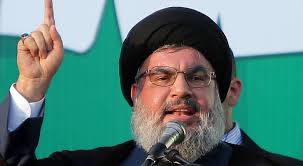Headlines
What’s Next if Nasrallah Is Dead?

Speculation over the death of Hezbollah leader Hassan Nasrallah raises questions about the group’s future and regional stability. Explore the possible political, security, and geopolitical consequences.
The possible death of Hezbollah’s longtime leader Hassan Nasrallah raises pressing questions about the future of the organization, the region, and its geopolitical allies. Nasrallah’s leadership was synonymous with Hezbollah’s rise as a major political and militant force in Lebanon and across the Middle East. What does his death mean for Hezbollah, Lebanon, and the broader power structures in the region?
Nasrallah’s Legacy
Hassan Nasrallah, who has led Hezbollah since 1992, is one of the most influential figures in the Middle East. Under his leadership, Hezbollah has transformed from a local militia into a powerful military and political force with close ties to Iran and heavy involvement in the Syrian civil war. Nasrallah is seen by many as a symbol of resistance against Israel and the West, and his fame rests on his ability to combine religious ideology with political strategy.
His death marks the end of an era for Hezbollah, leaving the group with a power vacuum that could have far-reaching consequences. Nasrallah’s deep-rooted influence within Hezbollah and his unique ability to maintain a delicate balance between military and political strategies will be difficult for any successor to emulate.
Who will lead next?
The most pressing question is who could replace Nasrallah. Hezbollah has a hierarchical structure, and potential successors include Hezbollah Deputy Secretary-General Naim Qassem and Ibrahim Al-Amin Al-Sayed. However, it is questionable whether a successor would command the same respect and wield the same authority as Nasrallah. This transition could trigger a power struggle within Hezbollah, weakening its cohesion.
Furthermore, Hezbollah’s external relations with its main backers Iran and Syria could be affected. Nasrallah maintained close ties with Tehran, which heavily funded and armed Hezbollah. It may be difficult for the new leadership to maintain the same level of credibility and influence as the Iranian leadership.
Implications for Lebanon’s political landscape
Hezbollah is not only a militant organization, but also a powerful political force in Lebanon. She has great influence over the Lebanese government, and any change in her leadership could further destabilize Lebanon’s already fragile political environment. With Lebanon struggling with an economic crisis, social unrest, and the aftermath of the Beirut port explosion, a leadership vacuum within Hezbollah could further destabilize the country.
Many Lebanese are divided over Hezbollah’s role, and may see Nasrallah’s death as an opportunity for political reform or escalation of tensions, depending on how Hezbollah’s transition unfolds.
Regional Implications: Israeli Tensions with the Middle East
Hezbollah’s relationship with Israel is also an important area to watch. Nasrallah has long been Israel’s most dangerous opponent in Lebanon. The group has sparked numerous clashes along the Israeli-Lebanese border. His death may lead Israel to view Hezbollah as weak and to take more aggressive action.
Meanwhile, Hezbollah’s potential instability could provoke retaliation from Israel, Iran, or even Syria, leading to a larger regional conflict. Nasrallah’s death could trigger a power shift in the Middle East, altering the balance between Sunnis and Shiites, especially as other regional powers such as Saudi Arabia, Qatar, and Turkey are closely monitoring the situation.
The Role of Iran and Syria
Iran’s role in the region, especially its impact on Hezbollah, cannot be underestimated. Tehran could use the opportunity to tighten its control over Hezbollah or use the leadership change to expand its regional influence, or a weakened Hezbollah could force Iran to rethink its strategy in Lebanon and Syria.
Syria, still recovering from its civil war, may also be affected by Nasrallah’s death. Hezbollah has played a key role in supporting the Bashar al-Assad regime. A change in Hezbollah’s leadership could lead to a realignment of its involvement in Syria and military focus in the region.
Uncertainty
The possible death of Hassan Nasrallah will undoubtedly send shock waves through the Middle East. Hezbollah is at a critical turning point and its continued influence in Lebanon and the region will depend on its future leadership. The political and military implications of such a policy shift could be far-reaching, potentially destabilizing Lebanon and leading to a larger regional conflict. At this delicate moment, the whole world is watching to see what happens next.
